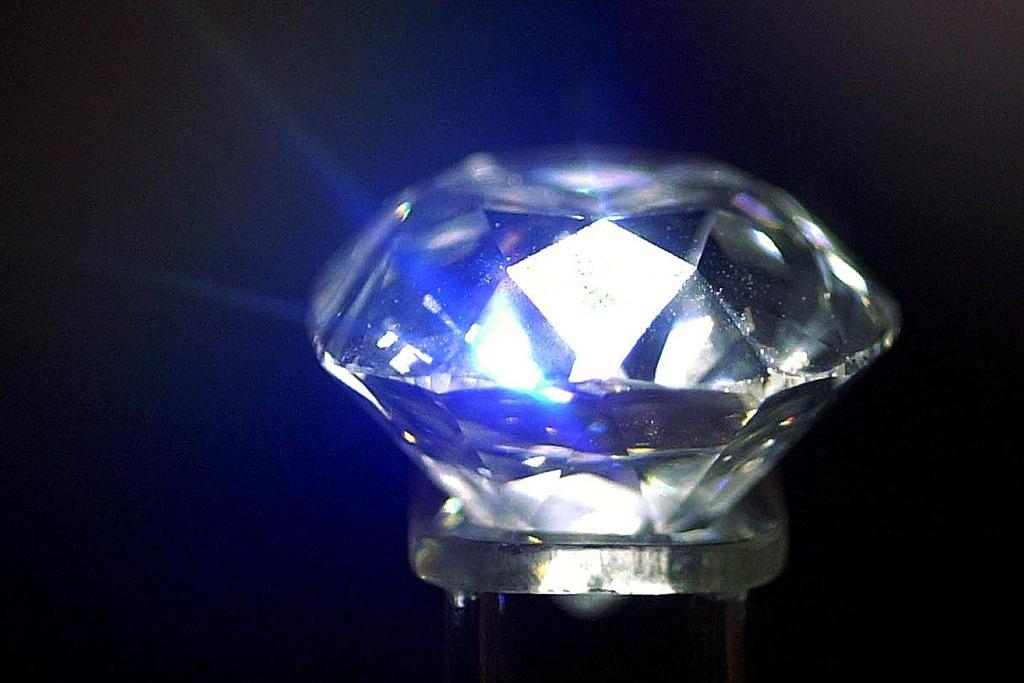Zimbabwe selling blood diamonds: report
International banks are helping Zimbabwean President Robert Mugabe’s regime to sell blood diamonds despite international restrictions, according to new reports.
JOHANNESBURG — Foreign banks are enabling illegal sales of Zimbabwean “blood diamonds” by allowing payments to be made through local banking partners, human rights groups warned.
Partnership Africa Canada, a group working to stop the trade in conflict diamonds, released a leaked document Tuesday that it says shows a Zimbabwean state-owned enterprise asking potential buyers of rough diamonds from the Marange fields to make financial payments through specified local banks.
The document appears to show the parastatal Mineral Marketing Corporation of Zimbabwe offering to sell more than $200 million in illegal diamonds.
"This shows Zimbabwe was willfully in breach of the universally respected ban on Marange diamonds," said Alan Martin, Partnership Africa Canada’s research director, to journalists in Johannesburg.
The three banks listed on the document — Commercial Bank of Zimbabwe, BancABC and Premier Banking Group — all have well-known foreign shareholders, among them Barclays UK, South Africa’s Standard Bank, and the International Finance Corporation, a member of the World Bank Group.
By facilitating transactions for Marange diamonds, these banks are “participating in diamond-related violence” and corruption in Zimbabwe, and exposing themselves to reputational harm, said Partnership Africa Canada.
Zimbabwe's Marange valley, on the eastern border with Mozambique, is home to rich alluvial diamond deposits that have an estimated worth of up to $800 billion and could be viable for the next 80 years. The diamond deposits were discovered in 2006 and in 2008, when the government of President Robert Mugabe seized control of the mining areas.
Sale of diamonds from the Marange fields in eastern Zimbabwe is subject to international export restrictions under the Kimberley Process Certification Scheme, the body that certifies trade in rough stones in a bid to prevent trafficking of blood diamonds.
The restrictions were imposed in 2009 after reports of brutal violence and human rights abuses by Zimbabwean government security forces, including the killing of at least 200 civilians when the military took control of the diamond fields. Since then, there have been continuing reports of human rights abuses — including rape, child labor and mass killings — by Zimbabwe state agents.
Only two legal sales of Marange diamonds have been permitted since then, both auctions which took place in 2010.
Rights groups say that secret sales have continued, and profits of millions of dollars from the diamonds are funding Mugabe’s ZANU-PF party, and will be used to bankroll a violent campaign to win upcoming elections.
A report released last year by Partnership Africa Canada documents how Zimbabwe’s inner circle of political and military elites loyal to Mugabe is reaping huge profits from control over the Marange fields.
Martin said the foreign financial institutions linked to Zimbabwean banks “subscribe to a higher ethical bar than those who are trafficking these dirty diamonds,” and should audit their investments in Zimbabwean banks.
“We want to give these banks the benefit of the doubt,” he added. “They could be unaware of it.”
The banks accused of laundering the blood diamond money, and businessmen with close ties to the Mugabe regime promptly denied the charges.
"Thankfully, right-thinking citizens of the world are no longer taking these Western-backed groups seriously, as everyone, including the European Union, are now aware that the Marange diamonds are the most clean diamonds in the world when measured by the Kimberley Process's blood diamonds yardstick," said Supa Mandiwanzira, president of the Affirmative Action Group, a group closely allied to the Mugabe government.
But Human Rights Watch said Tuesday that scores of “inhuman, degrading and barbaric” attacks are taking place by police and private-security guards working for private mining companies in those fields.
“We believe that it is wrong for certain members of the Kimberley Process to say that the situation at private companies is better than that of government-controlled mines,” said Tiseke Kasambala of Human Rights Watch.
“The human rights situation in Marange has not actually improved,” she said.
Researchers for the organization conducted interviews with poor, unlicensed miners who recounted being beaten by security guards, mauled by attack dogs and shot at after being caught in diamond fields controlled by private companies.
Kasambala said the miners told them that abuse of miners has continued: “They informed us that the violence has taken a new turn.”
The article you just read is free because dedicated readers and listeners like you chose to support our nonprofit newsroom. Our team works tirelessly to ensure you hear the latest in international, human-centered reporting every weekday. But our work would not be possible without you. We need your help.
Make a gift today to help us reach our $25,000 goal and keep The World going strong. Every gift will get us one step closer.
